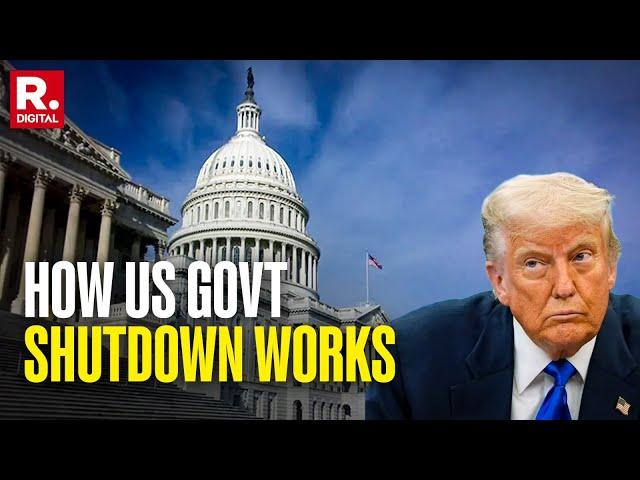Federal Government Shutdown: Consequences and the Road to Resolution
Government Operations Halt as Senate Funding Bill Fails
In a significant setback,the U.S.Senate was unable to approve a vital appropriations bill, resulting in a federal government shutdown that instantly affects a wide range of public services nationwide. The deadlock stems from entrenched disagreements over budget priorities,leaving numerous federal agencies without the necessary funds to maintain routine functions. This breakdown disrupts operations across various departments,impacting thousands of government employees and creating uncertainty for contractors and citizens dependent on federal programs.
Key immediate effects of the shutdown include:
- National parks and historic sites closing their doors, which halts tourism and affects local economies reliant on visitor spending.
- Suspension of non-essential government activities, leading to furloughs for thousands of federal workers until funding is reinstated.
- Delays in processing critical government services, such as Social Security claims,visa applications,and passport issuance.
| Agency | Effect | Current Status |
|---|---|---|
| National Park Service | Visitor centers and campgrounds closed | Operations suspended |
| Social Security Management | Backlogs in benefit processing | Limited functionality |
| Department of Homeland Security | Border security active; visa services delayed | Partially operational |
Widespread Impact on Federal Workforce and Public Services
The shutdown’s repercussions are immediate and profound for federal employees nationwide. Tens of thousands face unpaid furloughs, with some essential staff required to continue working without pay until a budget agreement is reached. This situation places significant financial pressure on families dependent on government salaries. Additionally, many federal offices will either close or operate with reduced capacity, exacerbating disruptions in vital sectors such as national security, healthcare administration, and public safety.
Millions of Americans who rely on government programs will experience service interruptions,including:
- Delays in federal loan and grant approvals, affecting small businesses and individual applicants.
- Postponements in food safety and health inspections, which safeguard public health.
- Halted funding for public transportation and infrastructure projects, impeding economic momentum.
| Sector | Anticipated Impact | Estimated Duration |
|---|---|---|
| Federal Employees | Unpaid furloughs | Indefinite until funding restored |
| Social Security | Processing delays | Several weeks |
| Veterans’ Affairs | Reduced staffing and service access | Several weeks |
| National Parks | Restricted access and closures | Weeks to months |
Political Stalemate Reflects Deep Divisions in Capitol Hill
The Senate’s failure to pass the funding legislation highlights the persistent partisan rift that hampers effective governance in Washington. Both Democratic and Republican lawmakers remain entrenched in their positions, unable to reconcile differences on critical budgetary issues. This deadlock has precipitated the first federal shutdown in several years, with core disagreements centering on spending levels, social welfare programs, and border security funding—issues that underscore the ideological chasm between the parties.
Primary reasons behind the stalemate include:
- Basic ideological clashes: Divergent visions for fiscal policy and government spending make compromise difficult.
- Political strategy and election pressures: Senators face intense demands from their constituencies and upcoming elections, discouraging concessions.
- Contentious policy areas: Healthcare funding and immigration enforcement remain particularly divisive and non-negotiable.
| Party | Budget Priorities | Main Obstacle |
|---|---|---|
| Democrats | Expanded social program funding | Opposition to cuts in Medicaid and similar programs |
| Republicans | Reduced overall spending and enhanced border security | Resistance to increased non-defense expenditures |
Strategies for Lawmakers to End the Shutdown
To mitigate the ongoing shutdown and prevent further economic fallout, it is indeed imperative that legislators engage in earnest bipartisan dialog focused on reconciling budget priorities. Open dialogue and compromise are essential to crafting a funding package capable of securing Senate approval. Prompt resolution will help restore public trust and ensure the continuity of government services.
Recommended approaches for Congress include:
- Restoring appropriations for vital public services and defense initiatives.
- Passing short-term continuing resolutions to maintain government operations during extended negotiations.
- Forming bipartisan budget committees to oversee ongoing fiscal discussions and prevent future impasses.
| Focus Area | Recommended Action | Anticipated Benefit |
|---|---|---|
| Healthcare | Safeguard continuous coverage | Ensure uninterrupted access to medical services |
| National Security | Maintain operational readiness | Preserve defense and safety capabilities |
| Infrastructure | Increase investment | Stimulate economic growth and job creation |
Conclusion: Navigating the Shutdown’s Challenges
The United States currently faces a significant disruption in federal government functions following the Senate’s inability to pass a critical funding bill. The shutdown’s effects are widespread, impacting federal employees, public services, and the broader economy. While lawmakers grapple with deep partisan divisions, the urgency to reach a bipartisan agreement grows, as millions of Americans feel the tangible consequences of stalled government operations. Continued coverage will track developments and efforts to restore funding and resume essential services.




